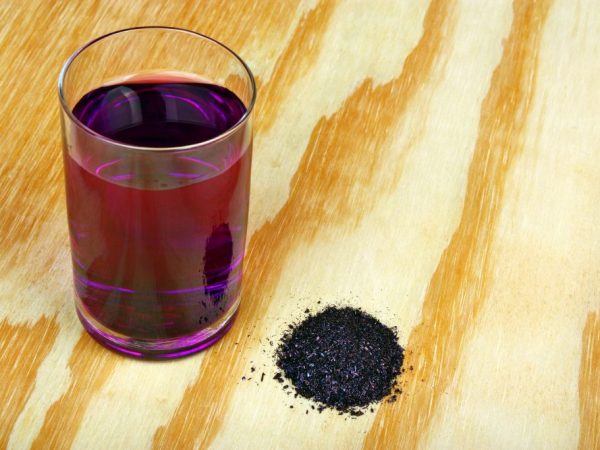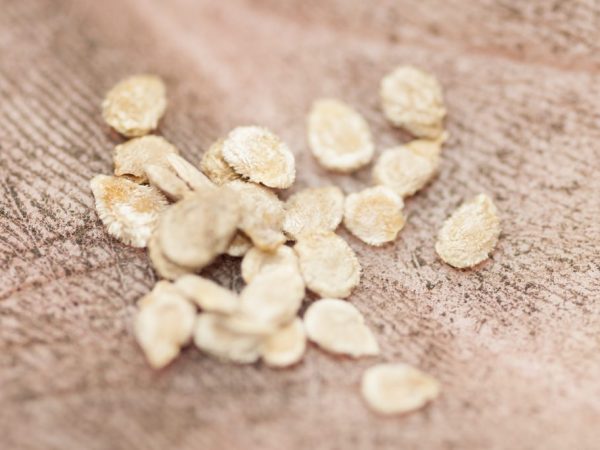The use of potassium permanganate for tomatoes
Gardeners have long come to the conclusion that it is possible to use pharmaceutical preparations for fertilizing vegetables. The most commonly used solution is manganese. Potassium permanganate for tomatoes is an ideal processing option, because it helps to cope with various diseases that tomato crops are exposed to.

The use of potassium permanganate for tomatoes
Using a manganese solution
Processing tomatoes with a solution of potassium permanganate is the best thing you can think of. The cost of such a tool is low, but, despite this, it allows you to prevent a large number of tomato diseases.
Benefits of using a manganese solution:
- Due to the fact that this agent is considered an antiseptic, it is ideal for disinfecting culture. That is, the leaves and soil completely get rid of all negative bacteria that can badly affect the plant. But, it should be noted and the disadvantage of this method. The thing is that the positive microflora of the soil is destroyed.
- As soon as the agent enters the substrate, a chemical reaction occurs. Subsequently, an oxygen atom begins to be released. As soon as it interacts with the soil, ions are formed. It is the ions that have a positive effect on the roots of the plant.
- If the crop is sprayed with such a pharmaceutical agent, then this has a positive effect on the tops of the plant - it becomes stronger and more beautiful in appearance.
- Potassium permanganate is used for soil feeding and plant disinfection.
- After pinching, manganese allows all wounds and cracks in tomatoes to heal. This reduces the risk of infection.
Tatiana Orlova (Candidate of Agricultural Sciences):
The full name of potassium permanganate is potassium permanganate. This chemical contains the elements manganese and potassium necessary for plants.
Seed treatment
- With potassium permanganate, seeds can be processed even at the preparatory stage. First of all, it is recommended to spray the seeds. Despite the fact that there are a large number of funds for such processing, experienced gardeners prefer potassium permanganate as the most affordable drug.
The processing of tomato seeds is carried out with a 1% solution of potassium permanganate. To prepare it, you should dilute 1 g of the product in 1 liter of water. Water the seeds or seedlings only with warm water.
After you have selected the seeds for planting, they are placed in a gauze bag. Next, the seeds are placed in a container with a solution and kept for about 20 minutes. It is not recommended to increase the disinfection time, as the seeds may lose their germination properties. Now you need to rinse the seeds in the fabric in plain water and leave to dry completely. Please note that it is not recommended to make a very strong solution and use a large amount of a pharmacy product, because this can negatively affect the further germination and development of the plant.
Tatiana Orlova (Candidate of Agricultural Sciences):
Inlaid seeds do not need disinfection with potassium permanganate.In large seed farms, tomato seeds are prepared in a specific way. They are first sanded to remove the fluff from the surface for better flowability. Then a disinfectant is applied, to which a dye of a certain color is added as an indicator that the seeds have already been disinfected and do not need to be etched. It is not recommended to soak such seeds before sowing.

Manganese treatment of seeds will improve their quality
It is necessary to process not only the seeds, but also the containers in which the planting is carried out, because harmful microelements and substances can also develop in them. To do this, you need to dilute 5 g of manganese in a 10-liter bucket of water (it is better if it is at a temperature of 80 ° C), after which all containers and soil are poured with the prepared substance.
Seedling processing
For a good yield of tomatoes, you need to water not only the seeds. It is very important to disinfect tomato seedlings in time. For these purposes, watering is carried out at the very root of the plant. In order for the seedlings to grow healthy, 2 watering of the soil with a manganese solution and 1 watering of the bush itself must be carried out.
In a 10-liter bucket, 3-5 g of a pharmaceutical product are diluted and watering is carried out at an interval of 10 days. This will eliminate all harmful microelements from the soil and on the leaves of the agricultural crop.
Care of planted crops
It is recommended to often process planted tomatoes, both in the open field and in a greenhouse. Such preventive measures should be carried out at least three times during the growing season.
For the first time, prophylaxis is carried out immediately after planting. Initially, you need to pour about 1 liter of warm water under the root. After that, it is recommended to water the tomatoes with a solution of potassium permanganate. Not only the root system is subject to processing, but also the stem with leaves. Activities should take place in the morning or evening. It is very important that there is no sun. Otherwise, burns may form on the surface of tomatoes. This procedure allows you not only to feed the culture, but also to provide it with protection from late blight.
The second stage of processing should be carried out at the moment when the first flowers appear on the tomato bushes. Spraying should only be done after organic matter has been added to the soil to improve growth. It will also allow the flowers to form better ovaries for future fruits.
The third treatment is carried out several weeks before harvest. Such actions are considered necessary, since late blight and brown spot are actively developing at this moment. To prepare the solution, you need to grind the head of garlic and pour several liters of warm water over it. After the mixture has been infused for 2 hours, the liquid must be poured into a 10-liter container. 5 g of manganese is added there and now everything is ready for spraying. You can water tomatoes with potassium permanganate 1 time in 10-15 days.
Conclusion
Tomatoes poured with potassium permanganate can give an excellent harvest. With the help of potassium permanganate, you can not only disinfect seeds, but also prevent the development of various diseases on tomatoes.



